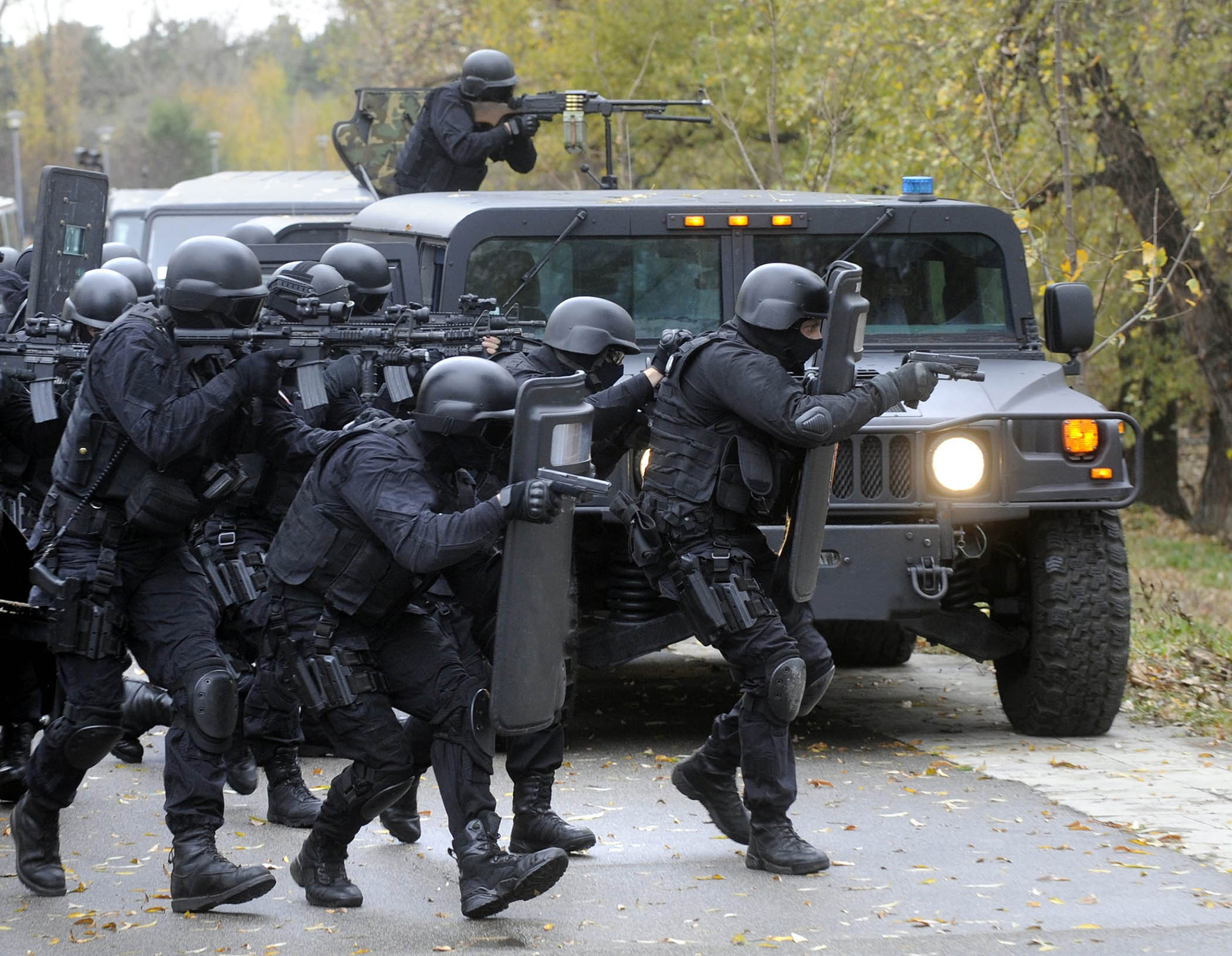From battlefield to U.S. streets
Author of book on police militarization to speak as part of Exploring Economic Freedom Project.

Have U.S. war fighters coming home from the Middle East and going to work in law enforcement contributed to the militarization of police forces – and ironically, a tightening of individual liberties – here at home?
“The short answer – yes,” said Abigail Hall, assistant professor of economics at the University of Tampa, Florida, and co-author of the book “Tyranny Comes Home: The Domestic Fate of U.S. Militarism” (Stanford University Press).
Hall and co-author Christopher Coyne, associate professor at George Mason University in Virginia, are taking part in a free public panel April 18 at Metropolitan State University of Denver to talk about their work. The discussion is part of the Exploring Economic Freedom Project.
Coyne and Hall conclude that what they call “coercive foreign intervention … creates opportunities to develop and refine methods and technologies of social control.” They define coercive intervention, in essence, as bringing about an outcome, other than what would have occurred, using a strategy that’s unwelcome to part of the population and “invests resources to deter or suppress resistance.”

Their point is to link, in people’s minds, U.S. foreign and domestic policies.
“The foreign policy of the U.S. is like an experiment on foreign soil,” said Alexandre Padilla, Ph.D., director of the Exploring Economic Freedom Project and an associate professor of economics at MSU Denver. “When (military troops and contractors) come back to the United States, they apply their experience to U.S. citizens.”
Padilla points out the wars’ influence in the form of tactical gear among police — body armor, rifles, helmets, armored vehicles — and acknowledges that militarization may lower crime.
“But what is the trade-off we are making?” he asks.
The researchers examined cases of state-run surveillance, militarization of law enforcement, use of drones and prison torture.
The Exploring Economic Freedom Project has hosted experts on immigration, income inequality, the war on drugs, sweatshops and the social and economic impact of Walmart in its more than 10 years of scholarly forums.

How can all those things relate to economics?
Because economics isn’t just about money or economies, Hall said. It’s about everything you do: “Economics is about human decision-making.”
The authors of “Tyranny Comes Home” applied the “tools of economics” to look at factors of foreign intervention, Hall said, such as rewards and punishments; the skills acquired to intervene abroad; the tools developed for intervention; the institutions conducting interventions; and the actual acts of intervening.
Within that framework, they analyzed old books and documents and built on their own past work on modern defense and law enforcement and that of scholars such as Peter Kraska, Ph.D. (the article “Militarization and Policing — Its Relevance to 21st Century Police”) and Radley Balko (the book “Rise of the Warrior Cop: The Militarization of America’s Police Forces”).
Alongside the co-authors, MSU Denver Professor of Political Science Amy Eckert, Ph.D., will take part in the panel discussion moderated by Emmy Award-winning journalist Tamara Banks.
They’ll discuss the “boomerang effect” of foreign intervention back home and how it helps explain what Coyne described as “the present-day surveillance state” and police militarization. These are “particularly things that are detrimental changes to civil liberties,” Hall said.
The Exploring Economic Freedom guest lecture on “Tyranny Comes Home: The Domestic Fate of U.S. Militarism” is April 18 from 3:30 p.m. to 5:30 p.m. at St. Cajetan’s Event Center at MSU Denver, 101 Lawrence Way. The program will be live-streamed on the Exploring Freedom YouTube channel at https://m.youtube.com/watch?v=Se-oTnnb-rE&feature=youtu.be.







